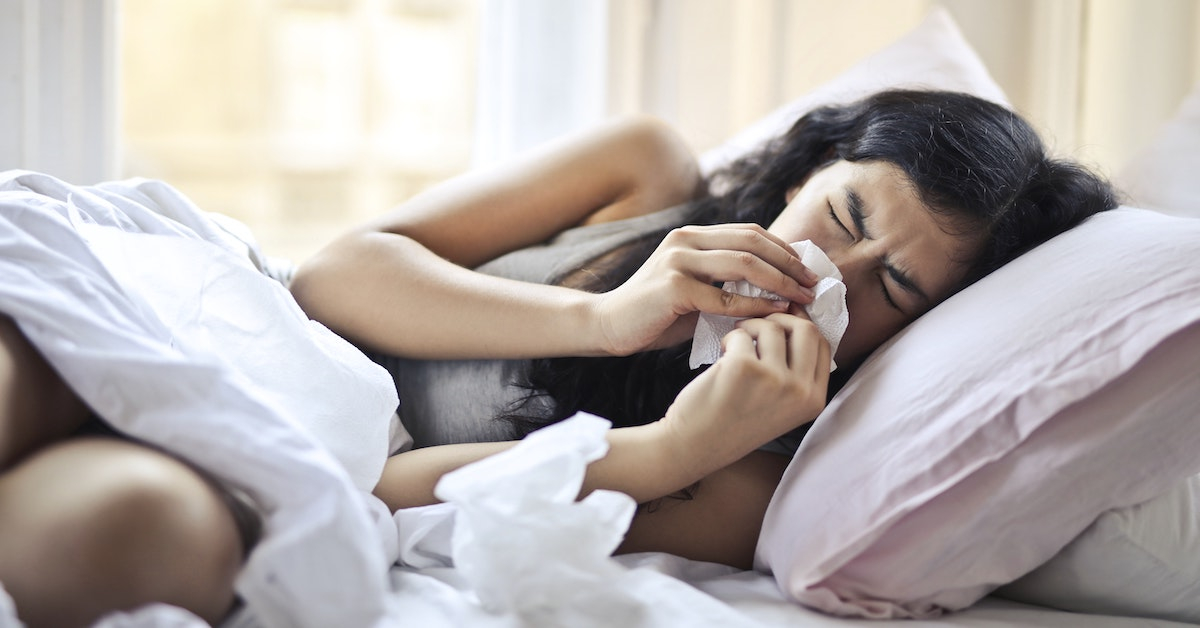This article is sponsored by one of the fastest-growing telehealth companies in America, Antidote Health.
Over 120 cases of the rare monkeypox virus have been confirmed around the world over the course of this past month, alarming a number of public health experts. This viral zoonotic disease, a member of the Poxviridae family of viruses, typically manifests in the form of swollen lymph nodes, often accompanied by an irritating rash and heavy fever.
Although this illness is seldom fatal, its unusual spread understandably has doctors and health officials worried. This isn’t the first time human cases have been observed outside the region where it was first discovered (Africa), over the 50+ years since its discovery. Although a small monkeypox outbreak previously occurred in the United States circa 2003, the transmission was primarily found amongst prairie dogs.
The pathogen has been found to adversely affect humans, rodents, and non-human primates, hence its namesake. Although this isn’t the first monkeypox outbreak observed outside Africa, it is one of the widest spread to be found across non-endemic regions. If you’re one among the many people feeling rightly worried by the re-emergence of this illness, here’s how you can protect yourself and potentially assuage that worry.
Where Monkeypox Came From
Monkeypox was first observed by researchers studying laboratory monkeys circa 1958, but it would take another 12 years before scientists identified the first human case of the virus in 1970. According to the World Health Organization, the first known human transmission of the pathogen was found in a 9-year-old boy living in the Democratic Republic of the Congo.
Since the child lived in a region of the Congo where smallpox had been all but eradicated, health experts were quick to rule out the more common poxviridae virus, and quick to identify the first human monkeypox case. Although this pathogen’s epidemiology and modes of transmission aren’t entirely understood, researchers do have a few ideas.
How Monkeypox Spread
Although transmission methods aren’t entirely understood, the monkeypox virus is known to have a few different methods of zoonotic (animal-to-human) transmission. There are multiple points of contact through which an infected animal could transmit the disease to a human:
- Bites from infected animals
- Aerosol transmission from infected animals
- Direct contact with lesions, abrasions, and body fluids of infected animals
Human-to-human and animal-to-animal routes of monkeypox virus transmission are less thoroughly understood, though the most likely routes of transmission are believed to be through aerosols and skin-to-skin contact.
Following transmission, the typical monkeypox incubation period could span between 4-20 days. On average, most human monkeypox infections become symptomatic after twelve days. Below are some hallmark clinical signs and symptoms to watch out for.
Monkeypox Symptoms
The initial symptoms of monkeypox are more flu-like in nature, before the appearance of symptoms more reminiscent of smallpox. During the initial symptomatic period, the flu-like symptoms that generally tend to emerge include:
- Fever
- Headache
- Cough
- Sore throat
- Fatigue
- Swollen lymph nodes
- Rash
- Muscle aches
- Chills
Rashes usually develop 1-10 days after the initial infection period, and the swollen lymph nodes can develop into painful lesions, which in turn, can form scabs. All in all, the illness period usually persists over 2-4 weeks, and the skin lesions usually resolve themselves over the course of 14-21 days.
The Centers For Disease Control and Prevention has stated that “currently, there is no proven, safe treatment for monkeypox virus infection.” Even so, the CDC has emphasized that general antiviral drugs can be effective at mitigating monkeypox symptoms, as well as the smallpox vaccine.
The CDC believes that the smallpox vaccine is “at least 85% effective” at not only relieving the symptoms of monkeypox, but outright preventing infection. Although the Biden Administration currently doesn’t consider a monkeypox quarantine necessary in the U.S. (see this recent Washington Post article), countries with heavier monkeypox infection rates, like Belgium, are adhering to a 21-day quarantine period.
Monkeypox: Is It Deadly? Will Monkeypox Become The Next Pandemic?
Although the symptoms of monkeypox are very unpleasant, and there’s currently no treatment unique to them, the good news is that the illness usually resolves itself, is less deadly than smallpox, and has a remarkably low case fatality rate. An animal disease guide from the NJ Department of Agriculture pins it somewhere between 1% to 15%.
Furthermore, barring any uncharacteristic, novel mutations, monkeypox is highly unlikely to escalate into a pandemic-scale infection, a la COVID-19. The virus is not known to be airborne, and is largely known to spread via aerosols or close, skin-to-skin contact, which still appears to be the case.
Although monkeypox is not considered an STD, W.H.O. officials have linked some of the largest ongoing monkeypox outbreaks to sexual transmission (per CNBC), indicating that the illness still lacks the same widespread sort of airborne virality we saw at the height of the COVID-19 pandemic.
However, just because a risk is lower, that does not mean that you shouldn’t disregard practicing due diligence. We’d strongly recommend that you adhere to the CDC’s safety recommendations, stay up to date on your smallpox vaccinations, and consider counting on telehealth resources throughout your infection period, assuming you need to isolate.
Visit our provider database to find important telehealth resources, from the best online pharmacies for finding antiviral medications, to urgent care resources (assuming you don’t need in-person care), to the best online doctors to seek guidance from, or in the case of providers like Antidote Health, all three!


